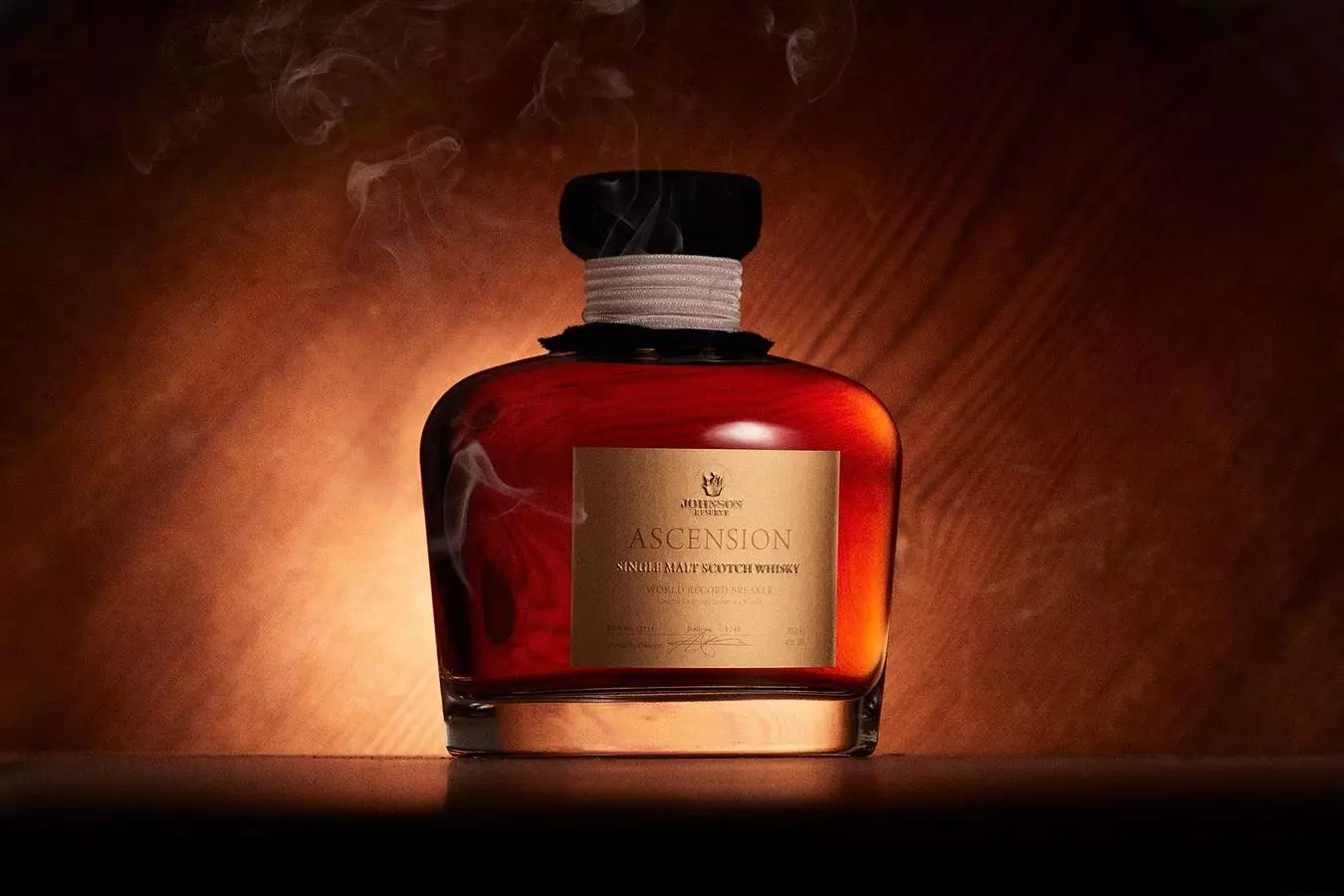When Alexander Johnson founded Johnson Reserve, he embarked on a journey that would not only reshape his life but also influence the whisky industry as a whole. Rather than viewing his entrance into the whisky market as a mere business venture, Johnson approached it with a vision to redefine the parameters of quality and craftsmanship. His unique background in corporate finance has equipped him with a blend of analytical skills and artistic sensibilities necessary for innovating a centuries-old tradition. Johnson’s undertaking is a testament to the idea that true mastery in any craft is born from rigorous study and respect for the art form.
In 2012, Johnson established a bonded storage facility in Glenfarg, which became a crucial component of his brand’s success. This venture was not simply a means to an end; it was a meticulously crafted environment where thousands of Scotch whisky casks were nurtured under his supervision. Johnson’s commitment to monitoring the maturation process has enriched his understanding of the subtleties that affect whisky development. “I began to see how subtle changes in conditions could dramatically affect the end product,” he notes. This awareness of maturation intricacies has steered Johnson toward respecting the tradition of whisky-making while allowing him to explore innovative avenues.
His commitment to authenticity was solidified during this formative period. At a time when the industry seemed enamored with celebrity endorsements and quick returns, Johnson maintained a focus on craftsmanship and quality. While many fledgling distilleries sought immediate financial backing from venture capitalists, he took the road less traveled, opting instead for steady, sustainable growth. “We have deliberately avoided venture capital involvement,” he states, “which has allowed us to maintain full control over the brand’s direction and focus on quality over quantity.”
Johnson’s approach involves creating a comprehensive business strategy that extends beyond just whisky production. He invested in additional infrastructure, allowing him to establish a foundation for stable income through support services and facilities that cater to the whisky industry. This strategic foresight freed him from the financial pressures that often plague new companies, allowing for organic growth instead.
“In essence, we’ve secured a more stable income stream,” he explains, highlighting the critical importance of patience and a long-term vision when building a legacy brand. “I never approached this with the idea of creating something fleeting or trendy,” he emphasizes. Johnson’s aspiration has always centered around longevity and quality—principles that are becoming increasingly rare in an industry obsessed with quick profits.
Johnson Reserve’s whiskies range dramatically in price, yet their appeal has not been diminished by their luxury status. Critically acclaimed, these spirits command prices from £175 to an astounding £3,500, but Johnson’s approach to luxury doesn’t stem from mere expense. In a memorable conversation with a Hermès executive, he learned the critical distinction between something being costly versus truly expensive. Costly items offer a premium for justified value, while expensive goods simply exploit their high pricing. This philosophy deeply informs Johnson Reserve’s branding and marketing strategy.
“Luxury consumers are not here to be sold; they seek authenticity and proof of worth,” Johnson insists. This principle drives his careful selection of the finest casks for maturation. For instance, Johnson Reserve Ascension stands out with a record-setting 33 casks used to perfect its flavor profile—a symbol of the depth and complexity that characterize his whiskies.
Johnson’s ambitions, unlike many in a fast-paced market, do not include selling the brand to major spirits companies like Diageo or Pernod Ricard. His commitment focuses on maintaining the quality of his products while gradually innovating within the framework of traditional distillation practices. “We’re not pursuing a fast-growth strategy,” he emphasizes. The brand is rooted in the idea of crafting exceptional whisky that resonates with consumers looking for more than mere beverages; they want an experience steeped in authenticity.
In an industry that often chases immediate gratification, Johnson’s slow-burn strategy stands in stark contrast. His methodical approach signifies an appreciation for whisky’s rich history and meticulous craft, suggesting that perhaps the future of whisky lies not in rapid growth but in thoughtful innovation.
Alexander Johnson’s journey with Johnson Reserve underscores a burgeoning movement within the whisky industry that prioritizes quality, authenticity, and customer experience over mere numbers. By redefining whisky crafting as an art form that combines economic insights with artisanal care, he has not only established a remarkable brand but has also set a standard that may lead to the renaissance of whisky-making. In a world addicted to quick wins, Johnson Reserve exemplifies that lasting success transcends immediate returns and instead resonates with a dedication to excellence.


Leave a Reply